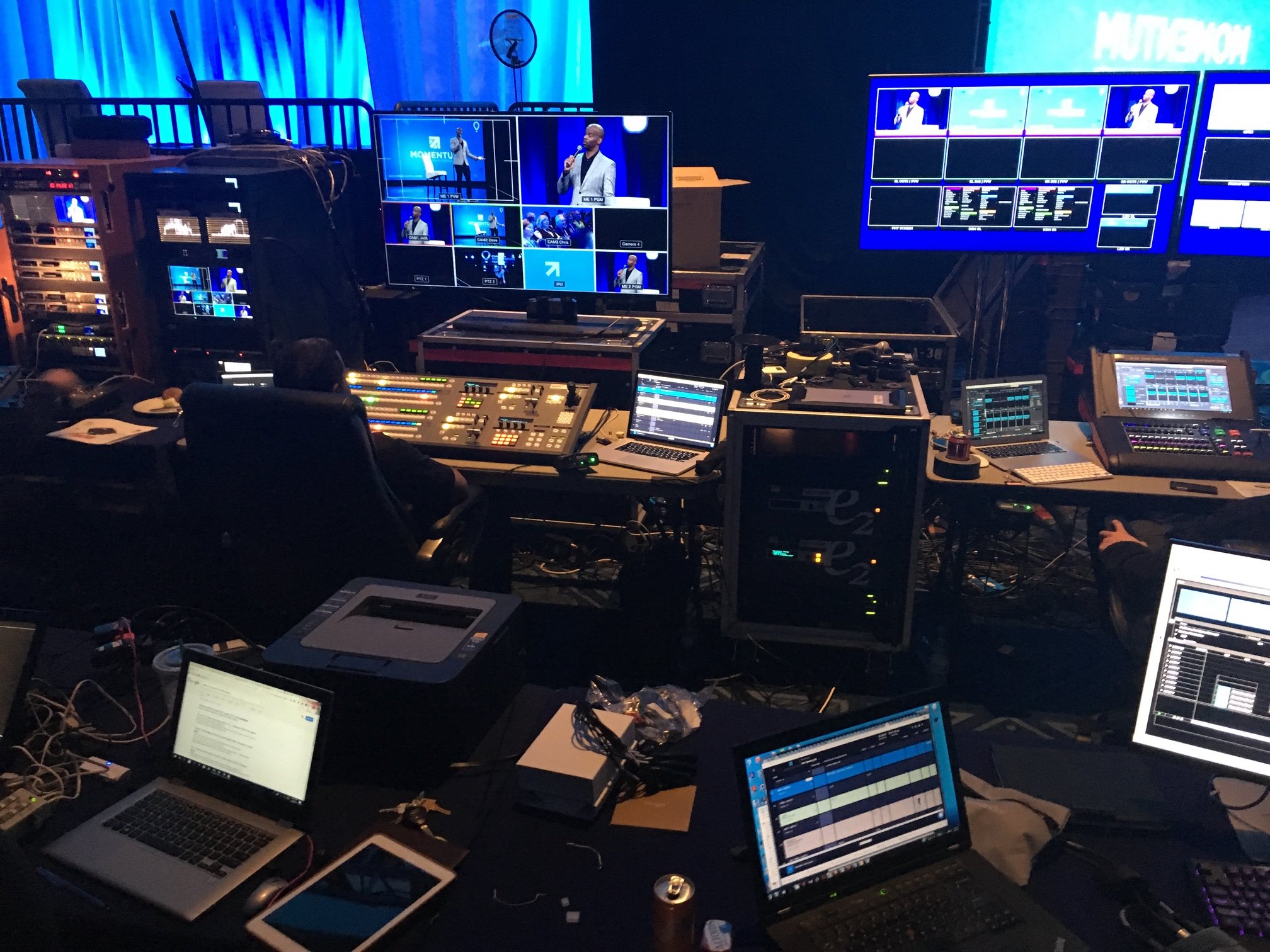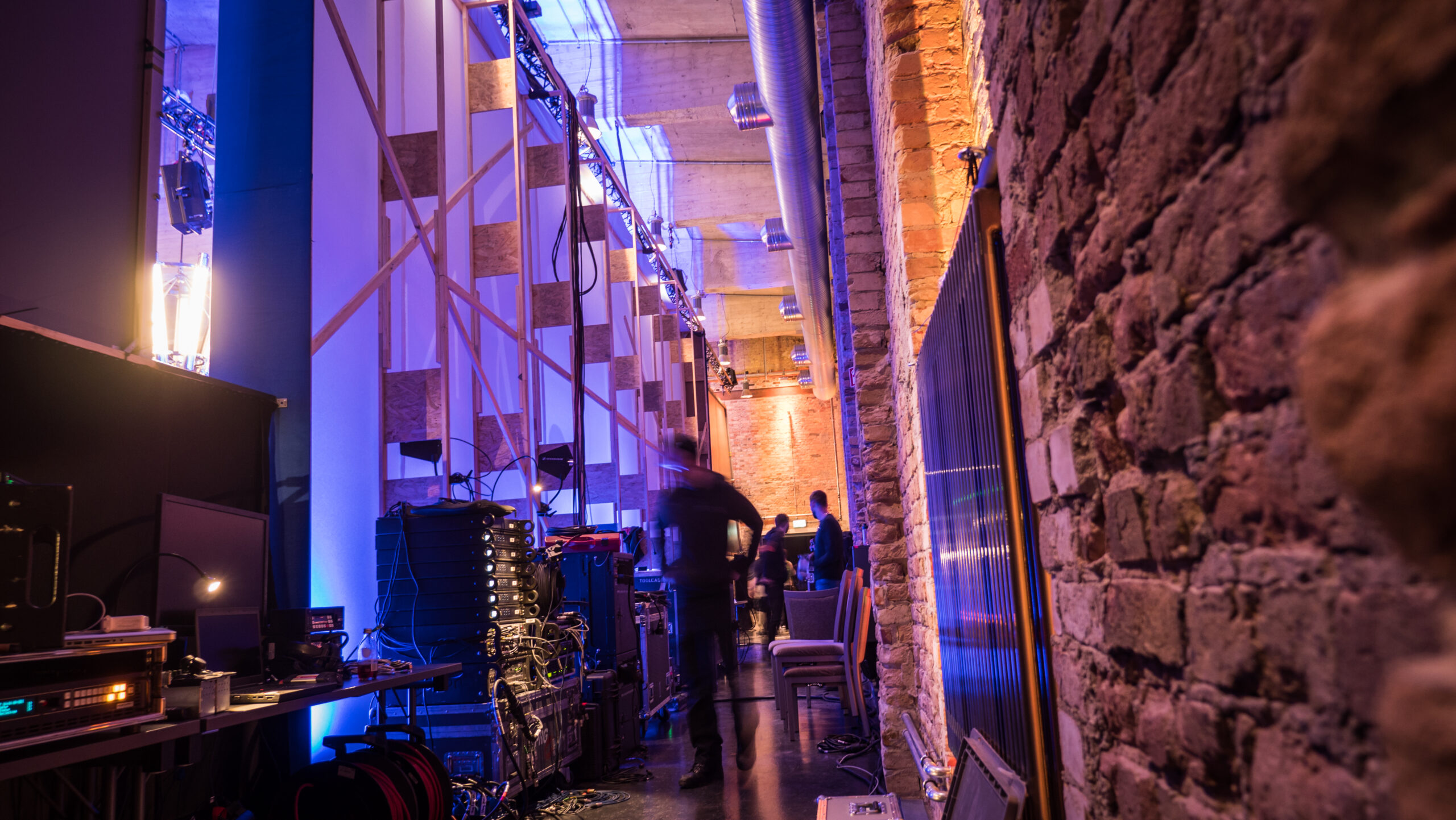Save time and energy with event production charlotte resource strategies
Wiki Article
Recognizing Event Production: Why It Is Necessary for Successful Gatherings
Event production plays a critical function in shaping effective celebrations. It entails careful planning, coordination, and execution to ensure every information straightens with the event's vision. This process not only improves guest experiences yet also promotes significant links among individuals. Comprehending the details of event production can greatly affect the overall end result. What are the key elements that add to a successful event, and just how can they be successfully managed?The Duty of Event Production in Developing Unforgettable Experiences
Although numerous variables add to the success of an event, event production plays a pivotal function in crafting remarkable experiences. This multifaceted procedure incorporates different components, including preparation, logistics, and implementation. Reliable event production guarantees that every information straightens with the general vision, producing a smooth flow that astounds guests. By working with timelines, managing sources, and overseeing technological facets, event producers establish a foundation for impactful experiences.Moreover, they curate environments that resonate with the target market, improving involvement and emotional connection. From choosing suitable venues to incorporating ingenious technology, the choices made throughout production substantially affect exactly how guests view and remember the event. By prioritizing top quality and attention to detail, event production changes regular gatherings right into remarkable minutes, leaving lasting impressions. Ultimately, the experienced orchestration of these elements defines the essence of an event, showcasing the relevance of specialist event production in achieving extraordinary outcomes.Secret Components of Successful Event Production
Reliable event production rests on numerous essential elements that guarantee success. Preparation and sychronisation develop a solid structure, while technological configuration requirements address logistical demands. In addition, implementing target market involvement methods boosts the total experience, making the event remarkable.
Preparation and Coordination
Planning and control function as the foundation of successful event production, guaranteeing that every information straightens flawlessly to create a remarkable experience. Reliable preparation involves establishing a clear vision and purposes, while sychronisation requires the careful company of logistics, schedules, and resources. A distinct timeline is crucial, guiding all stakeholders via crucial milestones and jobs. Interaction plays a critical role, fostering collaboration amongst employee, vendors, and location team. Normal conferences and updates aid to resolve obstacles quickly, ensuring that everybody stays straightened with the event goals. Inevitably, a structured strategy to planning and control not just boosts performance but additionally substantially adds to the overall success and pleasure of the event for attendees and organizers alike.Technical Configuration Requirements
A successful event relies greatly on its technological configuration requirements, which incorporate essential components such as audio-visual equipment, lights, hosting, and connection. Audio-visual equipment consists of microphones, audio speakers, and projectors, ensuring that presentations and performances are delivered clearly. Appropriate illumination boosts the atmosphere and highlights key areas, while presenting provides the essential platform for speakers and performers. Connection, including Wi-Fi and electric accessibility, is essential for smooth communication and technology assimilation. Each element needs to be carefully planned and carried out, customized to the event's particular demands. Inadequate technical setups can result in disturbances, negatively affecting the general experience for participants, underscoring the relevance of detailed preparation and focus to information in event production.Audience Involvement Strategies

The Significance of Planning and Coordination
Planning and control are vital to the success of any kind of event production. Efficient timeline monitoring, resource appropriation approaches, and group interaction characteristics play crucial functions in making sure that all aspects come with each other seamlessly. Without an organized strategy to these aspects, events take the chance of encountering hold-ups, spending plan overruns, and miscommunication among employee.Effective Timeline Management


While effective event production frequently depends upon creative thinking and implementation, reliable timeline administration stays a crucial aspect that can not be forgotten. A well-structured timeline functions as the backbone of any event, guaranteeing that each stage is performed in a timely way. It permits the sychronisation of numerous jobs, from place arrangement to guest arrivals, while protecting against potential bottlenecks. By clearly describing deadlines and obligations, event coordinators can keep emphasis and adapt to unexpected difficulties. Furthermore, a carefully crafted timeline promotes interaction among employee, advertising responsibility and partnership. Eventually, effective timeline management not this article just boosts functional performance yet likewise adds significantly to the total success and smooth execution of the event, leaving guests with a remarkable experience.
Source Allotment Techniques
Reliable source allotment strategies are crucial for the effective implementation of any event. Appropriate preparation permits event organizers to identify and disperse sources, such as finances, personnel, and products, in a fashion that makes best use of efficiency. By evaluating the specific requirements of each aspect of the event, organizers can prioritize tasks and allocate resources as necessary. Control amongst different divisions ensures that all aspects, from satisfying audiovisual needs, are appropriately supported. This calculated strategy not just lessens waste yet likewise improves the total experience for participants. In addition, preparing for prospective obstacles and having backup plans in position permits smoother operations. Eventually, efficient resource allowance contributes significantly to achieving event objectives and guaranteeing a memorable gathering.Team Interaction Characteristics
Exactly how can seamless communication among staff member transform the event production process? Efficient interaction is vital for working with tasks, sharing updates, and resolving difficulties in real-time. When team participants engage in open discussion, they can promptly determine prospective problems and create options collaboratively, lessening delays and misunderstandings. This vibrant fosters a natural atmosphere where everyone recognizes their roles and responsibilities, bring about a much more synchronized effort. Furthermore, routine check-ins and feedback loopholes improve responsibility and assurance alignment with the event's goals. By prioritizing interaction approaches, groups can streamline process, bolster morale, and ultimately boost the general quality of the event. Successful gatherings pivot on the capability to interact effectively, making it a vital component of event production.Enhancing Guest Involvement Through Creative Design
Creative design plays an essential duty in boosting participant engagement at events, as it cultivates an immersive atmosphere that mesmerizes individuals' focus. By incorporating ingenious visuals, interactive aspects, and thematic style, event planners can produce remarkable experiences that resonate with guests. Thoughtful format styles advertise motion and expedition, encouraging guests to connect with displays and each other.Incorporating technology, such as increased fact or live polling, more enriches the experience, allowing for real-time comments and communication. Furthermore, sensory aspects like lighting, sound, and scent can stimulate feelings and create a more appealing atmosphere.The usage of narration through design helps communicate the event's purpose and message, making it more relatable for guests. Inevitably, pop over to these guys imaginative layout not just boosts involvement but also grows links among individuals, leaving an enduring perception that prolongs past the event itself. This calculated strategy to layout is essential for successful celebrations.Taking care of Logistics for a Smooth Execution
While the excitement of an event can draw attendees in, managing logistics is essential to safeguard a smooth execution. This includes thoroughly coordinating numerous components, from venue selection and design to food catering and transport. Reliable logistics administration ensures that all components line up, allowing for a smooth circulation from enrollment to the verdict of the event.Additionally, a clear communication strategy amongst all stakeholders is essential. This consists of staff, vendors, and volunteers, that should be informed of their roles and responsibilities. Anticipating possible obstacles, such as tools failing or unexpected weather conditions, can even more enhance the event's success.Creating a thorough timeline aids keep the team on course and enables timely modifications. Inevitably, well-managed logistics not just assist in an enjoyable experience for participants yet also reflect the professionalism and dependability of the organizers, adding to the overall success of the celebration.
The Impact of Modern Technology on Event Production
What role does technology play in shaping modern event production? Technology has actually become a foundation of efficient click resources event production, enhancing both planning and implementation procedures. From innovative registration systems to interactive applications, modern technology simplifies guest administration and improves interaction. Virtual event systems allow coordinators to reach broader audiences, breaking geographical barriers and facilitating hybrid celebrations that integrate in-person and on the internet experiences.Additionally, audiovisual technologies, such as high-definition screens and audio systems, raise the high quality of discussions and performances, ensuring a memorable experience for guests - event production charlotte. Social media combination enables real-time comments and communication, fostering community involvement in the past, during, and after the event. Moreover, information analytics devices aid coordinators in keeping an eye on individual behavior and choices, allowing tailored experiences that resonate with diverse target markets. Generally, the integration of technology in event production not only improves operational efficiency yet additionally enriches participant experiences, ultimately contributing to the success of the eventEvaluating Success: Determining the Outcomes of Your Event
Success in event production depends upon effective analysis, which involves determining a selection of outcomes to examine the total impact of an occasion. To attain this, organizers can use both qualitative and measurable metrics. Measurable procedures might consist of participation numbers, ticket sales, and revenue generated, while qualitative evaluations might involve participant contentment studies and feedback forms.Additionally, assessing social networks involvement and media coverage can supply insights into the event's reach and brand name influence. Contrasting these metrics against predefined objectives helps determine if the purposes were met.Furthermore, post-event debriefs with the preparation team can reveal lessons discovered and locations for renovation. By methodically reviewing these outcomes, event producers can boost future celebrations, guaranteeing continuous development and success. Eventually, an extensive analysis not only highlights achievements yet also notifies strategic decisions for subsequent events, cultivating a society of excellence in event production.Frequently Asked Inquiries
What Credentials Should an Event Manufacturer Have?
Event producers need to possess solid organizational abilities, creativity, and reliable communication capabilities. A background in project management, budgeting, and settlement is necessary. Relevant qualifications and experience in diverse event types additionally boost their credentials.Exactly How Can I Lower Event Production Prices Effectively?
To properly decrease event production expenses, one can streamline supplier selection, negotiate agreements, use internal resources, prioritize vital components, apply technology for efficiency, and discover sponsorship possibilities to balance out expenses without jeopardizing quality.What Are the Typical Challenges in Event Production?
Common difficulties in event production include budget constraints, logistical control, supplier administration, time constraints, guest involvement, technical problems, and unexpected situations - event production charlotte. Each factor can significantly influence the general success and smooth execution of the eventJust how Do I Pick the Right Place for My Event?
Picking the appropriate place entails taking into consideration factors such as location, capability, features, and budget. In addition, reviewing ease of access and setting ensures the selected room straightens with the event's goals and improves the total attendee experience.What Is the Common Timeline for Planning an Occasion?
The regular timeline for intending an event varies, yet normally includes stages such as concept development, place selection, vendor sychronisation, promo, and last prep work, often covering numerous months to guarantee an effective execution.Report this wiki page